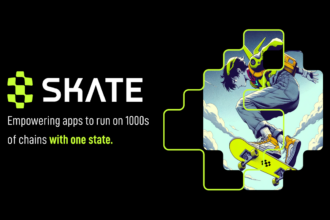As a runner and an athlete, Sunny Makroo had never found running to be a challenge. In fact, he believes running comes naturally to human beings, unlike some other fitness activities such as strength training, pilates, yoga or spinning, which would typically have to be learnt.
“We get the physics and biology of running as an inheritance,” says Sunny. This led him to start , a startup that is building ‘the third format’ of running by creating a metaverse for runners that preserves all that is good with both the indoor and outdoor formats of running and solving for all that is ‘not so good’.
“We are bringing the immersion, realism and social experience of outdoor running to the convenience and comfort of indoor running.”

The only thing users need is a treadmill and a device such as a smartphone or a tablet on which they can download and run the Zippy (available as ‘Zippy Fit’ on both iOS and Android Platforms) application. The company also one of startups.
Once a user has stepped on the treadmill, they will be “teleported” to a virtual world where the user can run across the major marathon cities (Boston, London, Mumbai, Tokyo) or scenic environments (jungle trail, beach run etc.), either with friends or solo via their digital twins or avatars, says Sunny.
Zippy is combining the principles of game-tech and deep-tech where runners run in an on-demand, immersive, safe, enjoyable environment and connect with fellow runners across the globe from the comforts of their homes.
The startup’s core team is based out of Gurugram, and it was formally incorporated in 2021.
Why Zippy?
The team at Zippy is confident that running will continue to be a part of the daily go-to workout regime for hundreds of millions of people across the world. However, running needs to be relooked from a first-principle approach where running is fun, effective, social, data backed and nothing comes between runners and their running schedule such as external dampeners such as poor weather, traffic or urban pollution, according to Sunny.
“We don’t want to see towels hanging dry on the treadmills, nor do we want to see runners braving inclement weather or compromising on their safety by running in unsafe spaces.”
While the COVID-19 pandemic has undoubtedly had a severe impact on people’s physical and mental health, the silver lining is that COVID has made people aware about their lifestyle choices.
Amidst all the mayhem and tragedy that the COVID-19 pandemic caused, one good thing that emerged from it was people becoming more aware of their health and lifestyle choices.
According to a recent survey by leading consulting firm EY, 79 percent of people globally today cite ‘health and wealth’ as their number one priority and people are looking at fitness solutions which are digital first and at-home.

Zippy is leveraging this shift in the consumer’s mindset to innovate running as a category that can truly transform people’s lives by unlocking fitness in a way which is both enjoyable and effective.
The startup’s singular mission is to improve the physical and mental health of people by nudging them into fitness regimes that keep them accountable and bring a sense of community, according to the founder. The fitness and wellbeing industry has been buzzing for a while now with prominent players such as Fittr and Cult.fit dominating the space.
A number of studies conducted on the Indian retail fitness services market all seem to suggest that there are six million active users in India who are spending on an average $350 to $400 annually towards fitness services, amounting to $2.6 billion market size.
“Coming to fitness regimes such as running there are only two formats in which people run. On the one hand – there are those who run outdoors primarily because outdoor running is an immersive and a social experience. However outdoor running requires planning and a lot of external dampeners such as bad weather, pollution, traffic can throw anybody’s running schedule into disarray.
“On the other hand, there are people who run indoors on treadmills. While treadmill running provides a very convenient, on-demand, safe and controlled environment, they are extremely boring, monotonous and lack social experience.”
Edited by Ramarko Sengupta
















